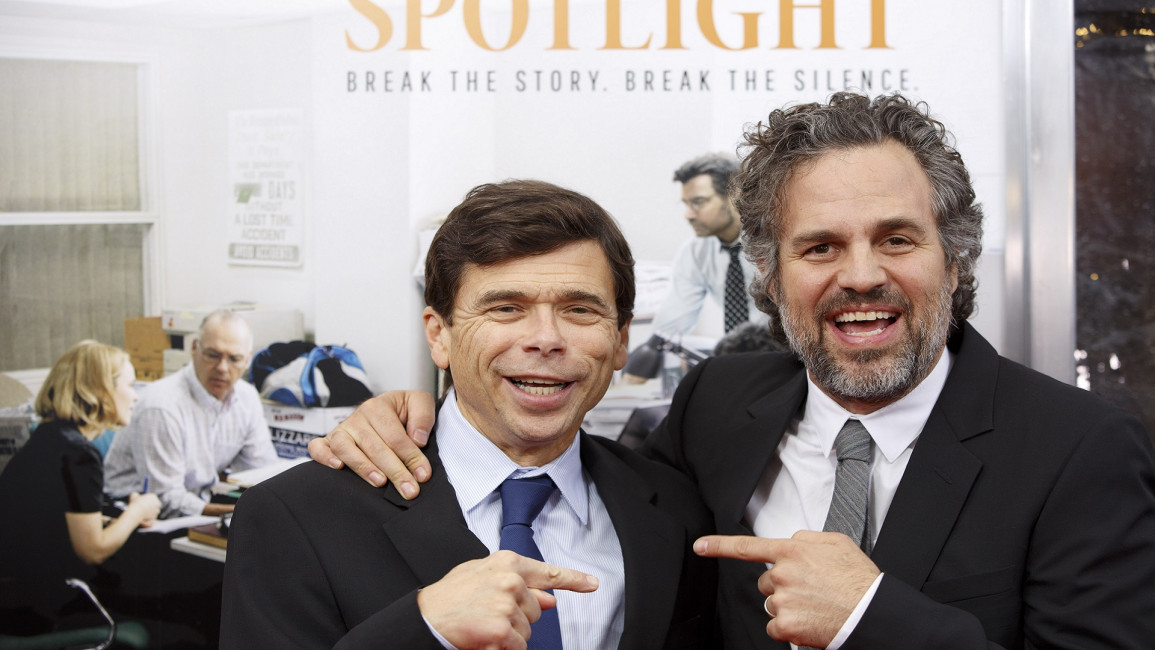
Why did Lebanon censor Oscar-winning film Spotlight?
Why did Lebanon censor Oscar-winning film Spotlight?
Lebanese film distributor, pre-empting controversy with the country's powerful church, decided against releasing a film about the sexual abuse of children by Catholic priests despite its big win at Oscars.
2 min read
Sorry Mark Ruffalo (R), your movie will not be shown in Beirut [Getty]
Spotlight, an Oscar-winning feature film telling the story of how journalists in the Boston Globe exposed priest sexual abuse in the United States, will not be shown in Lebanon.
While the film itself was not banned outright by Lebanon's government censors, many suspect it is a case of self-censorship on the part of the distributors due to the "sensitive" topic of the film.
According to MARCH, a group that campaigns against censorship, film distributors in Lebanon told them it wouldn't be worth showing the movie because of the controversy it would cause, and because the topic of child abuse by Catholic priests would be too sensitive to make it past the censors.
While the film itself was not banned outright by Lebanon's government censors, many suspect it is a case of self-censorship on the part of the distributors due to the "sensitive" topic of the film.
According to MARCH, a group that campaigns against censorship, film distributors in Lebanon told them it wouldn't be worth showing the movie because of the controversy it would cause, and because the topic of child abuse by Catholic priests would be too sensitive to make it past the censors.
“Technically, the distributors performed an act of self-censorship,” Farah Wahab, a project coordinator at the group, told The Global Post.
According to Wahab, “they decided not to present it to General Security.”
|
|
This was confirmed by Father Abu Kassem, head of the Catholic Information Centre, wrote blogger Najib Mitri.
Abu Kassem stated that they never received the movie for approval but that they didn’t mind showing it if it was an objective one and highlighted how the Church reacted to these accusations and punished these priests.
The so-called Catholic Information Centre is behind the ban on such works as The Da Vinci Code (Dan Brown).
Themes deemed controversial include the Holocaust, homosexuality and physical portrayals of the Muslim prophet Muhammad.
Lebanon is not the only country in the Middle East to heavily censor films.
Recently, several Arab countries banned another Oscar-nominated film, The Danish Girl, which portrays the life of a transgender woman.




